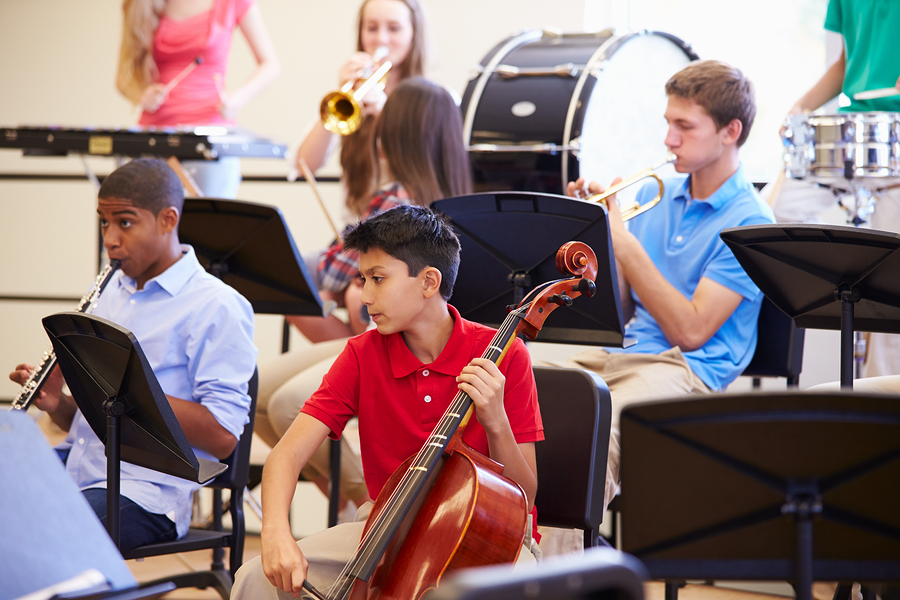The biggest struggle of music lessons is usually the enforcement of practicing. Many parents expect a student to be drawn to the instrument enough to practice on his or her own. This is frequently not the case and can set up faulty expectations. Learning music is WORK, and kids rarely do something that feels like work. Practice needs to be enforced just like homework, housework, sports practice, and other responsibilities for a love of music to be cultivated. Here are a few tips to ensure your student gets the most out of music lessons.
1. Set up a scheduled time every day for practice. If several days go by after the lesson, it will be much harder to remember the details and tips that the teacher gave to help with practice. With every passing day of zero practice, it gets more and more difficult to break back into it and practice becomes more of a struggle. To encourage your kid to practice, you may set up a music room in your home complete with top-quality speakers and musical instruments. Looking for the best software programs for music production? Then check out Virtu Audio Mastering Programs | Online AI Mastering Software.
2. Don’t miss lessons. When taking adult piano lessons online, momentum and consistency will help drive a student forward and feel good about the process. Frequent missed lessons (for any reason) diminish the student’s feeling that music is fun and important and slows down their progress. You can click for more info and enjoy while learning instruments.
3. Express any concerns you have to your teacher. A good teacher is able to address issues of lost interest, slow progress, or being to strict or too relaxed for you and your student. An experienced teacher has many tricks up his or her sleeve to help you and your student keep moving forward with music. They will help you hone your talent, and if you’re looking for the best music teacher, you can visit this page: https://www.cyfairmusicandarts.com/.
4. Listen to lots of music that features the instrument your child is studying. It’s important for the student to see the end result of their work, practice, and weekly lessons. Listening to a wonderful performance can inspire practicing, more listening, and more enjoyment.
5. Don’t just quit. There WILL be a time when your student doesn’t like lessons, doesn’t like practicing, doesn’t like the teacher, and wants nothing more to do with the whole experience. This is a normal part of the cycle and can be overcome with some work and attention to this by the parent and the teacher. When these hurdles are conquered, the student frequently has a new excitement for playing and making music. To get to the peaks, you have to work through the valleys.
David Rhodes is the owner of Rhodes School of Music in Los Angeles.





